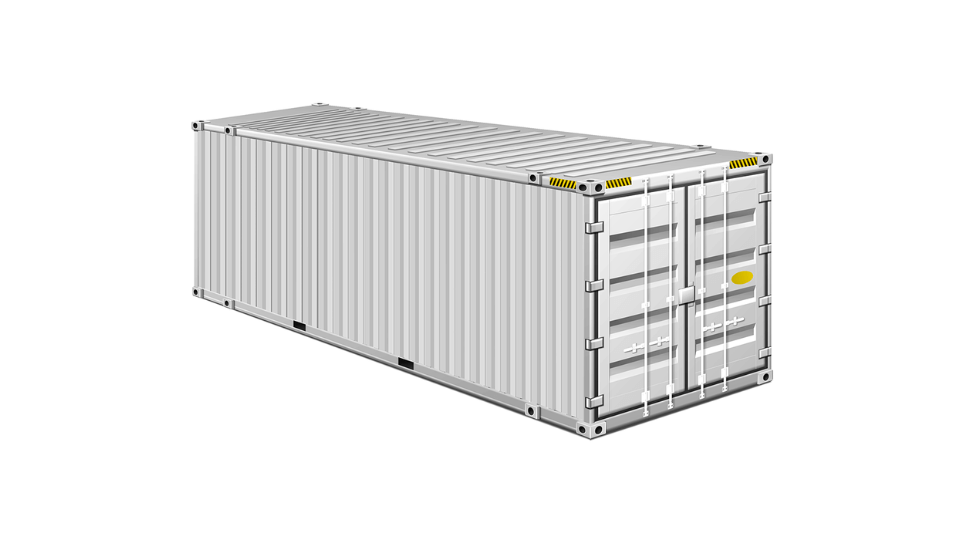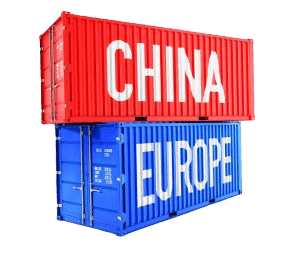what is a freight forwarder
Freight forwarder are crucial players in the global logistics industry. Understanding their role is essential for businesses involved in international trade. In this blog post, we will explore the functions and importance of freight forwarders in facilitating smooth and efficient transportation of goods across borders.
what is a freight forwarder
Freight forwarding refers to the business of being entrusted by others to provide services such as transportation procedures, pickup, delivery and transportation of goods.
Freight forwarders, some of whom are middlemen who do not have their own ships or planes, or shipping companies or airlines, are all freight forwarders. Their responsibility is to transport the goods entrusted by the client from one place to another through designated transportation channels. A company that acts as an agent for transportation companies (sea, land, and air) to collect and transport goods and collect goods.
The freight forwarding industry is between cargo owners and carriers in the international freight market. It accepts the entrustment of cargo owners and handles ship chartering, space booking, stowage, preparation of relevant documents, customs declaration, inspection, insurance, container transportation, unpacking and unpacking, Issuing bills of lading, settling freight and miscellaneous charges, and even negotiating and settling bills of lading.
Freight forwarder (Forwarder or Freight Forwarder) is a transportation operator that is mainly compensated by charging commissions or earning price differences. It is mainly used to collect goods that are less than the entire container, and then consolidate other goods into a container, which is then delivered to the shipping company for transportation to the destination.

what freight forwarders do
Simply put, they provide knowledge related to all logistical, regulatory and compliance requirements for international shipping and enforce these requirements on your behalf. In the process, they will make it easier for you to focus on trading with overseas customers and suppliers.
Are freight forwarder 3pls
First, let’s quickly explain all these “PL” terms. If you, as a shipper, own and operate your own logistics operation, you are a first party. If you contract directly with an asset-based carrier, that carrier is a second party (2PL). The 3PL will select and manage the 2PL on your behalf. The 4PL is responsible for managing the 3PL.
A 3PL can manage many aspects of your supply chain through outsourcing. While freight forwarders primarily focus on transportation, 3PLs can provide warehousing and distribution services as well as shipping services. Many large freight forwarding companies (such as RJ Logistic) are 3PLs and can provide contract logistics and other services.
Very large enterprises that cooperate with multiple 3PLs can choose to cooperate with 4PLs. These strategic partners will oversee 3PL and freight forwarding operations, serving as a single point of contact to manage all logistics and supply chain requirements of the company.
A freight broker, similar to a freight forwarder, is the middleman between you and the carrier. But freight brokers are usually involved in domestic shipments, while freight forwarders focus on international shipments. When goods need to cross national borders, the shipping process becomes more complex, and many companies don’t have the resources to manage it effectively.
freight forwarder vs broker
Businesses transport large amounts of goods around the world every year. Freight brokers, freight forwarders, and freight carriers are important factors in this important and complex business. Freight brokers, freight forwarders, and freight carriers assist in the movement of goods, but they do so in different ways and in different parts of the shipping industry.
It is sometimes difficult to tell the difference between a freight broker, freight forwarder, and freight carrier, and the terms are often interchanged. However, they all differ greatly.
What is a Freight Broker
Freight brokers act as middlemen in the shipping process and are responsible for arranging and planning shipments. Merchants hire freight brokers to work with third-party companies such as freight companies and freight forwarders to arrange and settle the time or method of delivery of goods.
Freight brokers do not control the items sent, nor do they own the trucks or other equipment used to transport the items. Typically, freight brokers do not process documentation for their clients. Freight brokers generally do not provide further services such as consolidating or packaging.
It is the freight broker’s job to reach the necessary agreements. Transportation companies and carriers are connected through freight brokers who manage shipments. To obtain brokerage authorization, brokers must apply to local authorities.
The broker is not responsible for the custody of the goods. Freight brokers primarily manage shipments to and from U.S. destinations. Freight brokers can manage global operations; they are usually limited to a single region.
freight broker, freight forwarder, freight carrier
All in all, a freight broker is the middleman. They seek to bring shipping lines and carriers closer together. They determine the shipping requirements within the industry and for certain customers with whom they are associated. There’s also operator accessibility within that market. Freight brokers typically do not handle international shipping and paperwork for clients.
Freight forwarders, on the other hand, play a more active role, bridging the gap between carriers and their customers. They take on more responsibility on behalf of their customers and do not ship goods themselves. They are primarily responsible for preparing goods for shipment. They can also handle international shipping responsibilities.
Finally, the freight carrier is the actual carrier of the goods being transported. They handle and transport goods requested by customers for delivery. They can handle domestic and international shipping. Now you know the difference between these three terms; freight broker, freight forwarder, and freight carrier.

Do i need a freight forwarder
If you are engaged in business and trade, you need a freight forwarder because he can help you solve many problems.
For air freight, you don’t contract with an airline, but instead use a freight forwarder. For ocean shipping, the shipping lines will not contract with you directly unless you are transporting a large amount of cargo. If you contract directly with a shipping company, it limits your options. Just like business travelers want to evaluate multiple options and choose the most convenient flight, cargo shippers want the same flexibility. If you choose directly, you will be limited in the carrier’s schedule and price; while the freight forwarder can find the solution that best meets your requirements among all carrier contracts.
For cargo transportation, you need a truck driver to pick up the goods, a carrier to transport it, a customs broker to clear it, a transfer station to unpack it, and finally a truck driver to make the final delivery at the destination. Additionally, rules and regulations vary from country to country. Therefore, a simple booking software cannot cope with the complexity of the global shipping process. Another potential disadvantage is what if something goes wrong during shipping and intervention is required? The software cannot automatically reroute shipments or resolve delays at customs. Faced with these situations, you need to contact an expert directly who understands the situation and can solve the problem.
Freight forwarders are experts in solving these problems, because their job is to help you solve the entire cargo transportation process perfectly. And you only need to focus on brand operations.
What should I pay attention to when choosing a freight forwarder?
Here are a few of the most important criteria you should refer to.
Freight forwarding capabilities in your high-traffic corridors. This requires the freight forwarder to maintain strong relationships with the carriers that serve the corridor, giving you price advantages that other freight forwarders cannot offer. For example, RJ Logistic can ship anywhere in the world, especially if your goods need to be shipped from China, whether it is North America, South America or Europe shipped from China.
We have a network of local service locations. Compared to freight forwarders with a network of self-operated service locations, freight forwarding companies that rely on agents to operate cannot provide the same level of service. In the self-operated service base network model, each service base collaborates on the same system and follows customer-specific SOPs. Staff at these self-operated service locations have an in-depth understanding of local market regulations and can communicate with local agencies and logistics partners in the local language to get the job done.
Strong IT integration capabilities. You must make it easy to share data with freight forwarders. But if you choose the wrong partner, integrating your systems can be a nightmare. Many freight forwarders simply don’t have the resources to assist and certainly won’t customize a consolidation plan to your exact needs. You need to look for a forwarder that has its own IT resources and can quickly complete system integration without the time (and sometimes additional cost) of finding a third-party solution.
Offers a variety of services. This will save you time and effort by eliminating the need for you to personally arrange matters other than the transportation of your goods, such as customs clearance, insurance, or even warehousing services at the destination.
What are the benefits of freight forwarding services?
- cut costs. If the shipment volume is high, the freight forwarder can negotiate rates with the carrier to your benefit. Additionally, freight forwarders can combine your shipments with those of other customers to obtain a lower combined rate.
- Gain freight capacity. Large freight forwarding companies manage large freight volumes, so they have enough purchasing power to guarantee the transportation space you need.
- Gain expertise. When importing or exporting products, it is important to have the latest information on customs regulations, duties and taxes. Without a reliable freight forwarding partner, you must maintain this knowledge within your organization, which is costly.
- Focus on your core business. Every international transportation project requires filling in various documents and coordinating various tasks. These complex issues can easily distract you from your core business.
To learn more about sourcing from and shipping from China, please contact us. We provide a list of products with high profit margins for you to choose from, and help you select high-quality suppliers and complete full logistics services, including warehousing, transportation, customs clearance, and door-to-door delivery.







